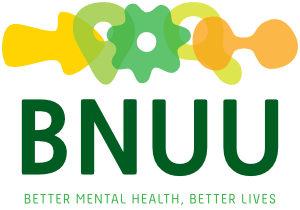
-
Banner photo credit: Simone Fior
PROGRAMME: Mental Health and Well-Being of Young People
Location: Agago District, northern Uganda
- Ongoing
Northern Uganda is still recovering from the 20-year civil war, leaving many people with PTSD and emotional scars. Covid-19 triggered many psychological scars felt by young people. Stigma prevents them from seeking help, and if they do, health workers often lack the skills to help. A survey carried out by BNUU in Uganda in November 2021, found that young people often witness violence at home, have been victims of violence and don’t participate in activities they used to enjoy before Covid-19 lockdowns. Furthermore, Uganda’s schools were closed for nearly two years – amongst the longest in the world, adding to social isolation and mental health issues. Parents and teachers lack the knowledge and skills to deal with youth mental health. There is limited access to youth-friendly mental health services and unsupportive school environments require urgent intervention to save the most at risk youth under 25 years of age – which comprise 77% of Uganda’s population.
Photo credit: Simone Fior
In 2023 BNUU received a grant from Grand Challenges Canada to implement a 2-year programme improving mental health services for young people in Patongo Town Council, Omot, Lamiyo and Lira Palwo sub-counties. Using a stepped-care model, BNUU is delivering mental health services in 30 schools, reaching 1,818 young people. The stepped care model comprises a ladder of interventions from the least to the most intensive, matched to individual needs. Through training, raising awareness and advocacy, the programme is also increasing understanding of mental illness, reducing stigma and empowering young people affected by mental ill health so they can take control of their lives.
The programme provides training to teachers to enable them to identify and provide basic counselling to young people with depression and anxiety. It also is building the capacity of health workers, Village Health Teams, teachers and counsellors by using the WHO’s Mental Health Gap Action Programme (mhGAP) to identify and manage young people’s mental health concerns.
Photo credit: Simone Fior
Network for Africa is providing support with strategy, reporting, monitoring and evaluation and safeguarding. BNUU is the grant holder.



